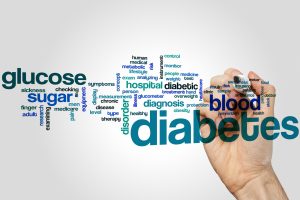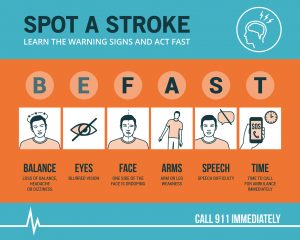 Do you skip breakfast? Does your busy schedule make it hard to eat in the morning? Are you just not hungry in the early hours of the day? You may have heard that breakfast is the most important meal of the day. Recent research has found that this may be true. Skipping your morning meal can deprive your body of many important nutrients vital to overall health.
Do you skip breakfast? Does your busy schedule make it hard to eat in the morning? Are you just not hungry in the early hours of the day? You may have heard that breakfast is the most important meal of the day. Recent research has found that this may be true. Skipping your morning meal can deprive your body of many important nutrients vital to overall health.
Health benefits linked with eating a morning meal include better focus, more energy, lower risk of heart disease and diabetes, among other things. However, a 2011 study found that it is not just important that you eat breakfast, but what you eat at breakfast.
What is a healthy breakfast?
A 2011 study by the Institute of Health and Society in Worcester, UK found that it is lower glycemic and higher protein foods at breakfast that will provide the most health benefits. Therefore, swap out your coffee cake or sugary cereal for more nutrient-dense foods. Recommended morning breakfast protein sources include eggs, legumes, nuts, seeds, fish, and poultry. Also, protein from soy, hemp, and pea protein powders can provide a great non-dairy source of protein. In addition, cottage cheese and protein-rich Greek yogurt are great morning meal options. It is suggested that 30 grams of protein should be eaten at your morning meal to provide an adequate energy source.
Along with protein, you should balance out your morning meal with complex carbohydrates for fiber. Such fiber-rich foods may include high-fiber cereals such as bran or oatmeal. Other fiber-rich carbohydrates may include low-glycemic fruits such as berries, grapes, or citrus fruits. Also, you could add non-starchy vegetables to your breakfast such as peppers, onions, or leafy green vegetables in your omelette. You could also add spinach leaves, kale, or carrots to your morning smoothie with a scoop of plant-based protein powder and some berries.
Recent research
A more recent study in the British Journal of Nutrition has found that those young people who skipped breakfast were more likely to be low in nutrients such as folate, calcium, iron, and iodine. Nearly a third of students who skipped breakfast had low iron intake versus 4-percent who did eat in the morning. Similar findings were found for calcium intake. One-fifth of students who did not eat breakfast had low calcium intake versus 3-percent of those who did eat a morning meal.
The Centers for Diseases Control have found that students who eat a morning meal have improved performance in school. Students who eat breakfast tend to have better focus, attendance, grades, and memory compared to those who skip. It is likely that adults would have the same benefits from eating breakfast. However, more studies would need to be done in such age groups to confirm this theory.
Filling in the Nutrient Gaps
If you find that you are not getting a morning meal in each day, here are some ways to ensure you are getting all of your nutrients during the day.
- Have healthy snacks available with you at all times. Fiber-rich nuts and seeds, protein-rich jerky and protein bars, as well as freeze-dried fruit are healthy snacks that do not need refrigeration. Keep these snacks in your car, purse, backpack, or at work to make sure you always have nutritious sources of energy on hand.
- Carry an emergency protein shake with you on-the-go. Pre-prepared protein shakes and waters can provide portable nutrition. If you don’t have time to sit down and eat a solid meal in the morning, you can at least sip your meal while sitting in traffic or during your morning class or meeting. There are many non-dairy sources of protein drinks for those who may have a dairy intolerance.
- Take a multivitamin daily to fill in the nutrition gaps. Ask your doctor to test for such important vitamins as B12, vitamin D, and iron. If you are low in any of these vitamins, taking supplements may be necessary to get your health up to speed. In the meantime, it doesn’t hurt to take a multivitamin daily. A great multivitamin choice is Zestia by VitaSciences. Zestia contains a comprehensive vitamin profile, 45 fruits and vegetables, a superfood complex, and probiotics to help support optimal health.
–written by Staci Gulbin, MS, MEd, RD, LDN
Sources:
Centers for Disease Control (May 2014) “Health and Academic Achievement” https://www.ncbi.nlm.nih.gov/pmc/articles/PMC4017414/
Kamada, I., et al. (2011) “The impact of breakfast in metabolic and digestive health.” Gastroenterology and Hepatology from Bed to Bench, 4(2):76-85.
Medline Health News (August 17, 2017) “Young Breakfast Skippers Lack Vital Nutrients” https://medlineplus.gov/news/fullstory_167879.html
 recent report by the Centers for Disease Control and Prevention (CDC) says that over 100 million people in the United States have diabetes or prediabetes.
recent report by the Centers for Disease Control and Prevention (CDC) says that over 100 million people in the United States have diabetes or prediabetes. reflux occurs for twice a week for more than a few weeks. Uncontrolled GERD can lead to respiratory problems or conditions such as esophagitis, which is an inflammation of the esophagus.
reflux occurs for twice a week for more than a few weeks. Uncontrolled GERD can lead to respiratory problems or conditions such as esophagitis, which is an inflammation of the esophagus. disease risk. These rules include:
disease risk. These rules include: benefit those with anxiety, depression, insomnia, and even irritable bowel syndrome. Furthermore, in those with anxiety, meditation helps diffuse worries by improving focus on the present-day.
benefit those with anxiety, depression, insomnia, and even irritable bowel syndrome. Furthermore, in those with anxiety, meditation helps diffuse worries by improving focus on the present-day.

